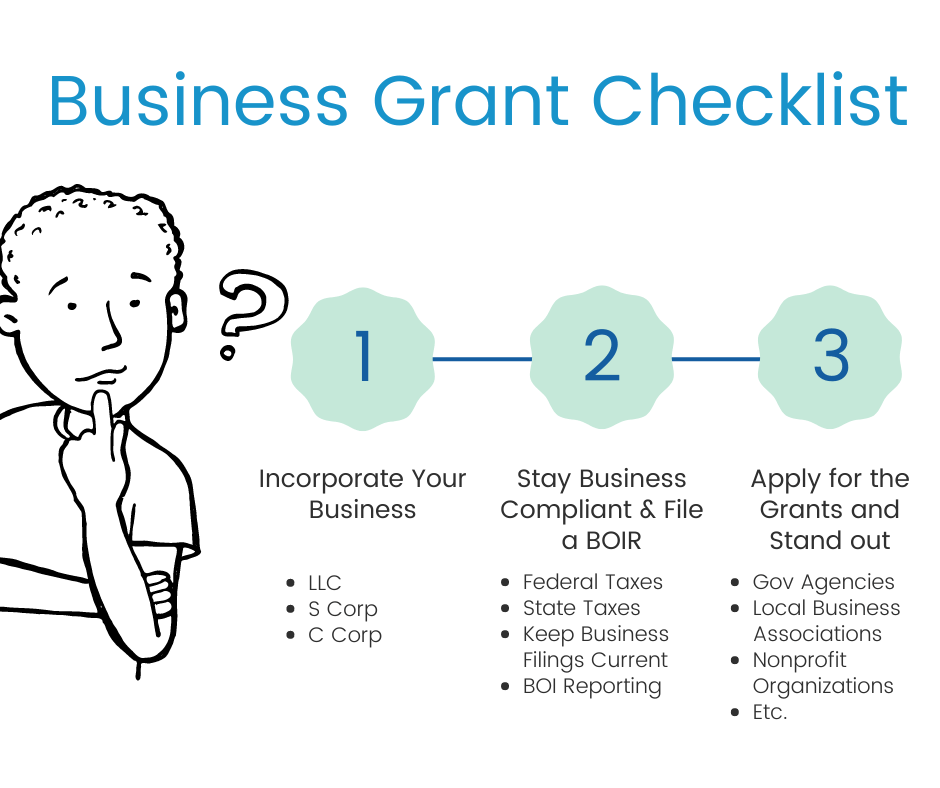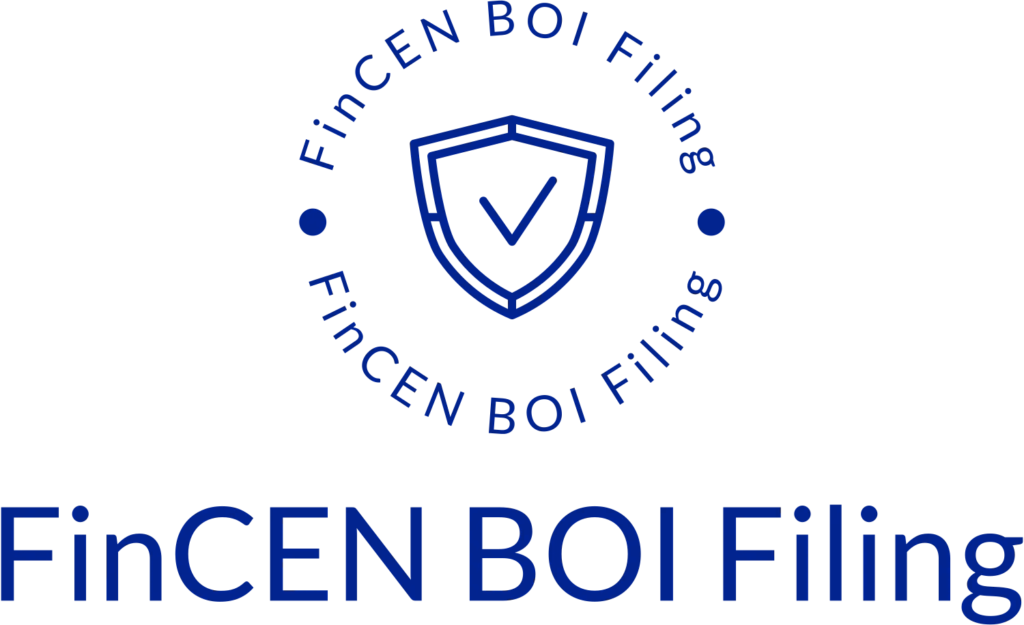Hey there, fellow Minnesotans! If you’re a small business owner in the Land of 10,000 Lakes, you might be feeling like you’re skating on thin ice when it comes to funding. But don’t worry, there’s hope on the horizon – and it doesn’t involve selling your prized Vikings memorabilia.
In this article, we’ll dive into the world of small business grants right here in our beloved North Star State. We’ll explore where to find these hidden treasures, from the bustling streets of Minneapolis to the shores of Lake Superior. Plus, we’ll walk you through the steps to qualify for these grants, ensuring you’re as prepared as a Minnesotan with a fully-stocked winter emergency kit in their car.
Where to Search for Small Business Grants in Minnesota
Minnesota’s entrepreneurial landscape is ripe with hidden gems and untapped potential, just waiting for savvy business minds to uncover them. With a little digging and the right resources, ambitious go-getters can tap into a treasure trove of grants and opportunities that could turn their big ideas into thriving ventures in the Land of 10,000 Lakes.
Some Minnesota Local Resources Include:
Minnesota’s Small Business Association: The SBA in Minnesota is a treasure trove of resources for entrepreneurs with big dreams and empty pockets. They’re like that savvy friend who always knows where to find the best deals, except in this case, it’s funding opportunities tailored to small businesses. Whether you’re a startup looking for your first injection of capital or an established business seeking expansion funds, the Minnesota SBA has got your back.
As for grants, the Minnesota SBA doesn’t directly offer them, but they do provide invaluable guidance on navigating the grant landscape. They can point you towards state and federal grant programs that might be a perfect fit for your business. Remember, though, grants are like unicorns in the business world – rare and often hard to catch. But with the SBA’s help, you might just find yourself riding one to success.
Minnesota’s Economic Development Agency: The Economic Development Agency is a treasure trove for ambitious entrepreneurs seeking financial support. Their website is brimming with valuable resources, from detailed guides on securing loans to comprehensive lists of available grants and incentives. It’s like having a savvy business mentor right at your fingertips, ready to help you navigate the often-murky waters of startup funding.
Minnesota’s Economic Development Agency offers the Minnesota Small Business Development Loan Program, a lifeline for small businesses looking to expand or modernize. This program provides loans ranging from $20,000 to $500,000 to eligible small businesses. To qualify, your business must be located in Minnesota, have fewer than 500 employees, and demonstrate a need for financing that can’t be met through traditional lenders. It’s like finding a golden ticket for your business growth aspirations!
Minnesota’s Chamber of Commerce: The Minnesota Chamber of Commerce is a goldmine for entrepreneurs seeking funding opportunities. They offer a comprehensive suite of resources, including networking events, mentorship programs, and access to potential investors, all designed to help business owners secure the capital they need to grow and thrive.
The Chamber also provides a Small Business Growth Accelerator Grant, which is available to Minnesota-based companies with fewer than 50 employees and less than $5 million in annual revenue. This competitive grant program offers up to $25,000 in matching funds for eligible businesses looking to expand their operations, invest in new technologies, or explore new markets.
Highlighted Grant: Boost Your Business with This Opportunity
As a digital marketing expert, I’m always on the lookout for opportunities that can help entrepreneurs grow their businesses. The Emerging Entrepreneur Loan Program from the Minnesota Department of Employment and Economic Development is one such opportunity that caught my attention. This program is designed to support small businesses in Minnesota, particularly those owned by minorities, women, veterans, and people with disabilities. It provides loans to help these entrepreneurs start or expand their businesses, creating jobs and fostering economic growth in the state. If you’re an aspiring business owner in Minnesota, you’ll definitely want to click here to learn more about this valuable resource.
To qualify for the Emerging Entrepreneur Loan Program, businesses must meet certain criteria. The program is targeted at micro-enterprises and small businesses with fewer than 50 employees and less than $5 million in annual revenue. Priority is given to businesses owned by minorities, women, veterans, and people with disabilities, as well as those located in economically distressed areas. The loans can be used for a variety of purposes, including start-up costs, equipment purchases, inventory, and working capital. It’s important to note that businesses must also demonstrate the potential for success and the ability to repay the loan. If you think your business might qualify, I highly recommend exploring this opportunity further.
Additional Grant Opportunities
When looking for small business grants, it may benefit you to look beyond the boundaries of Minnesota. Skip is your one-stop platform for discovering and securing the funding you need to start or grow your business. With thousands of grants ranging from $1,000 to $25,000, finding the perfect opportunity is just a click away.
Imagine having access to a user-friendly dashboard where you can track and apply for grants tailored to your business in Minnesota. Skip’s AI-assisted grant writing tool helps craft compelling applications that stand out, and with instant feedback, you can ensure your submission is top-notch every time.
Join the thriving community of entrepreneurs who have already reaped the benefits of Skip. With over $300,000 in grants donated and strong partnerships with government agencies and non-profits, Skip is dedicated to your success. Take the first step today and turn your business dreams into reality – Click Here to get started with Skip.
Grant Qualification: What You Need to Know
As an entrepreneur in Minnesota, it’s crucial to understand that incorporation is often a prerequisite for qualifying for small business grants, both at local and national levels. Many organizations offering grants require businesses to be formally incorporated before considering their applications. This requirement ensures that the business has a legal structure and demonstrates a level of commitment and professionalism. Incorporating your business not only opens doors to potential grant opportunities but also provides additional benefits such as personal asset protection and increased credibility.
When it comes to incorporating your business, we have found that Northwest Registered Agent stands out as the best option for entrepreneurs. Their expertise in handling the incorporation process, combined with their exceptional customer service, makes them an ideal choice for business owners looking to establish their legal entity. Northwest Registered Agent offers a streamlined approach to incorporation, ensuring that all necessary paperwork is filed correctly and efficiently. Their knowledge of state-specific requirements and ongoing support can be invaluable as you navigate the complexities of running a legally compliant business.

Why Compliance and BOIR Are Vital for Grant Qualification
Compliance isn’t just a box to check; it’s your ticket to opportunity. For Minnesota entrepreneurs, staying on top of federal and state taxes, along with keeping business registrations current, isn’t merely about avoiding trouble—it’s about opening doors to grants that could fuel your growth. Think of it as the price of admission to a world of possibilities.
The Corporate Transparency Act has added a new layer to this compliance puzzle, requiring businesses to unveil their beneficial owners through a Beneficial Ownership Information Report. While it might feel like another bureaucratic hurdle, view it as a chance to demonstrate your business’s integrity and commitment to transparency. The alternative—steep financial penalties—is a risk no savvy entrepreneur should be willing to take.
That’s where we come in. Navigating the Beneficial Ownership Information Reporting (BOIR) requirements can be daunting, but our website simplifies the process. We offer a secure and straightforward filing experience with a direct connection to FinCEN, ensuring your information is handled with the highest level of security. Our platform makes compliance effortless so you can focus on growing your business.
Don’t let penalties slow your business down. Failing to comply with Beneficial Ownership Information Reporting (BOIR) requirements can result in severe consequences. If you fail to file, you could be subject to the following penalties:
- Fines of up to $500 per day for failure to file BOIR
- Cumulative fines reaching up to $10,000
- A person who willfully violates the BOI reporting requirements may be subject to criminal penalties of up to two years imprisonment.
Not sure if you have a BOIR filing requirement? Please take our quick BOI eligibility quiz to determine whether you need to file and ensure you comply with regulations.
Final Thoughts: Securing Business Grants in Minnesota
In the end, success in business often comes down to resourcefulness and persistence. Minnesota entrepreneurs have a wealth of grant opportunities at their fingertips, but tapping into them requires effort and savvy. Remember that rejection is common and rarely personal – keep applying, keep learning, and stay open to feedback. The path to funding is rarely linear, but those who approach it with patience and an eagerness to improve tend to find their way. Good luck out there.
For all of you out there who haven’t yet tackled your BOIR, the time to act is now. Procrastination won’t get you anywhere, but taking just a few minutes to complete our straightforward form will. Don’t let this critical step in your compliance journey slip through the cracks—get it done and move forward with confidence.
Frequently Asked Questions
Have questions about the Beneficial Ownership Filing process? Check out FinCEN BOI Filing's frequently asked questions for the answer.
What is a BOI report?
A Beneficial Ownership Information (BOI) report is a filing required by FinCEN to disclose key details about individuals who own or control a company, ensuring compliance with anti-money laundering laws and enhancing corporate transparency. Filing a BOI takes 5-10 minutes and can be done here.
When does the CTA become effective?
The Corporate Transparency Act (CTA) reporting requirements take effect on January 1, 2024. Business entities established before this date have until January 1, 2025, to meet the reporting obligations.
Are there penalties for not filing a BOI report?
Yes, failing to file a BOI report can result in substantial penalties, including hefty fines and potential legal repercussions. Learn more about the BOI deadlines and non-filing BOI penalties.
How do I file a BOI report?
Filing a BOI takes about 5-10 minutes and can be done here. If you’re not sure if you are required to file, you can take the one minute BOI Eligibility Quiz.
Who is considered a beneficial owner?
A beneficial owner is any individual who either:
- Directly or indirectly exercises substantial control over the reporting company, or
- Directly or indirectly owns or controls 25% or more of the company’s ownership interests.
Substantial control includes the power to direct, influence, or determine significant decisions of the company. This may involve senior officers or individuals with authority to appoint or remove senior officers or a majority of the board.
Ownership interests encompass rights that establish ownership in the company, ranging from basic stock shares to more complex financial instruments.
For more details on “substantial control” and “ownership interests,” refer to our guide on complex ownership structures.
How do BOI reports get submitted to FinCEN?
We submit reports through a secure API connection directly with FinCEN’s Beneficial Ownership Secure System (BOSS). This integration allows for seamless and efficient filing of Beneficial Ownership Information reports, reducing the time it takes to complete and submit a report.
Our user-friendly form is designed to minimize errors by guiding you through the process with clear prompts and checks. Additionally, by using the secure API connection, we ensure that your data remains private and protected throughout the submission process, adhering to the highest security standards.
Who can access the beneficial ownership information?
The beneficial ownership information will be accessible only to authorized government agencies, such as law enforcement and regulatory authorities, for the purpose of combating money laundering, fraud, and other financial crimes.
This data is not publicly available and is used solely for compliance with legal and regulatory requirements. Only those with a legitimate need, as defined by the law, will be able to access this information to ensure transparency and uphold national security.
You can read more about keeping your personal information private when filing your BOIR.
Do I need to file a BOIR annually?
No, you do not need to file a Beneficial Ownership Information Report (BOIR) annually. However, you are required to update and file a new report if there are any changes to the beneficial ownership or company applicant information, such as changes in ownership or control. The report must be filed when there are material updates, but there is no annual filing requirement unless changes occur.
What information is required in a BOI report?
Type of Report
The reporting company must specify the type of report being submitted: an initial report, a correction of a prior report, or an update to a prior report.
Company Information
The reporting company must provide the following details:
- Legal Name: The official name of the company.
- Trade Name: Any “doing business as” (DBA) names used by the company.
- Address: The current street address of its principal place of business. If the principal place of business is outside the U.S., the company must report the address from which it conducts business in the U.S.
- Taxpayer Identification Number (TIN): This includes an EIN, SSN, or ITIN, as appropriate.
Beneficial Owner Information
The reporting company must provide the following details for each beneficial owner:
- Legal Name: The individual’s full legal name.
- Date of Birth: The individual’s date of birth.
- Address: The individual’s residential street address.
- Identification Document: A unique identifying number from an acceptable identification document, the issuing state or jurisdiction, and an image of the document.
Company Applicant Information (if required)
For reporting companies created on or after January 1, 2024, the following information about the company applicant must be provided:
- Address: The individual’s residential street address. If the applicant forms or registers companies as part of their business (e.g., paralegals), the business address can be used. The address does not need to be in the U.S.
- Identification Document: A unique identifying number from an acceptable identification document, the issuing state or jurisdiction, and an image of the document.
Who needs to file a BOI report?
Most businesses are required to file a BOI report, with exceptions for 23 specific categories, such as publicly traded companies and other regulated entities. To learn more about these exemptions and determine if your business needs to file, read this article.
When is the BOI report due?
- Companies formed or registered before January 1, 2024, must file an initial BOI report by January 1, 2025.
- Companies formed or registered in 2024 must file a BOI report within 90 days of receiving actual or public notice of their formation or registration.
- Companies formed or registered on or after January 1, 2025, must file their initial BOI report within 30 days of receiving actual or public notice.
You can learn more about the BOI deadlines here.
What is type of ID is required?
Acceptable identification documents include the following:
- A valid, unexpired driver’s license issued by a U.S. state or territory.
- A valid, unexpired ID card issued by a U.S. state, local government, or Indian Tribe for identification purposes.
- A valid, unexpired passport issued by the U.S. government.
- If none of the above is available, a valid, unexpired passport issued by a foreign government may be used instead.
An identification document must be collected for each beneficial owner.
For companies formed after 2023, an ID must also be provided for the company applicant.
Who is a company applicant?
A company applicant is the individual responsible for creating or registering a company. Specifically, it includes:
- The individual who directly files the document to form or register the entity with the relevant state or tribal authority, such as the Secretary of State.
- The individual primarily responsible for directing or controlling the filing process, even if they are not the one submitting it.
For companies formed or registered after January 1, 2024, this information must be reported as part of the Beneficial Ownership Information Report (BOIR).
Is it necessary to use a certified public accountant (CPA) or other professional to submit a BOI report?
Most individuals will be able to submit their Beneficial Ownership Information reports directly without needing assistance from attorneys or CPAs. Our streamlined, user-friendly form guides you through the process, making it simple to provide the required information accurately and efficiently.
Is a company required to update and correct information that is no longer accurate?
Yes, a company is required to update or correct its beneficial ownership information whenever it is no longer accurate. If there are any changes to the company’s beneficial owners or company applicant information, such as a change in ownership percentages or control, the company must file an updated report with the correct details. This ensures that the information on record remains accurate and compliant with the reporting requirements, helping to maintain transparency and reduce the risk of misuse.
Will I receive a confirmation of submission after submitting the BOIR?
After submitting your BOIR through our website, you will receive an email containing a unique submission process ID, confirming that your submission has been successfully received.
The email will also notify you once FinCEN has accepted your report. In rare instances, if your submission is rejected, we will inform you of the reason and provide a link to resubmit the corrected information.
You can track the status of all your submissions through our BOIR tracking page, ensuring you stay updated on the progress of your report. Most submission have a confirmed acceptance within a few minutes of submission.





